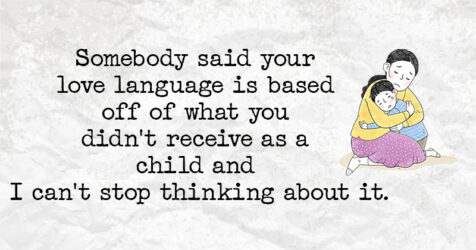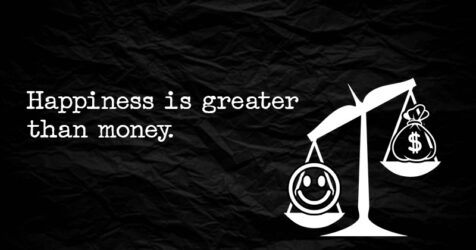11 Strategies to help you recover from burnout

For a certain amount of time, your brain and body can only endure being overworked and overloaded.
If you have high amounts of stress on a regular basis without taking steps to manage or minimize it, tiredness will eventually set in, leaving you emotionally and physically exhausted.
You may begin to lose motivation since it appears that nothing you do counts.
Because burnout develops over time, you may not notice symptoms right away. However, once it takes hold, it can have a negative impact on your capacity to operate in many areas of your life.
Recognize the symptoms
The following are some of the most common indications of burnout:
- forgetfulness and inability to concentrate
- a loss of pride in your work
- losing sight of who you are and what you want to achieve
- relationships and being present with loved ones are challenging to preserve.
- irritation and frustration with coworkers
- muscle tension, soreness, weariness, and insomnia with no apparent cause
Burnout affects between 4 and 7% of the working population, according to estimates, however professionals in specific professions, such as healthcare, experience it at substantially greater rates.
Burnout can have a wide-ranging effect, including:
- having a detrimental impact on work performance
- preventing you from engaging in hobbies, spending time with family, or unwinding outside of the office
- raising the chance of health problems like heart disease, type 2 diabetes, depression, and suicide
Burnout must be addressed immediately, since it tends to worsen with time. The following ten stages will assist you in getting started on the road to recovery.
Look for the source
When you don’t know what needs to change, it’s difficult to make adjustments, but looking into contributing causes or sources of stress in your life can assist.
Burnout is frequently linked to work and professional causes, such as the stress of a more demanding job. However, you may get burnout if you:
- keeping a strict academic schedule
- dealing with relationship issues, particularly those that appear to circle indefinitely
- taking care of a loved one who has a serious or chronic illness
Burnout thrives in environments where people try to do too much on their own.
“Eventually, you bend so far that you shatter,” says Barrie Sueskind, LMFT, a therapist in Los Angeles.
Assume you’re a single mom with a full-time job who is also attempting to keep up with friends and loved ones while taking online classes.
Each factor’s stress may be manageable on its own, but the combination can easily overwhelm you if you don’t seek help.

Make a list of adjustments you can make right now
You might immediately recognize a few strategies to lighten your load.
Week after week, three distinct time-consuming projects have you working long hours?
Sueskind states, “Those with a lot of ambition to achieve in their occupations are tempted to do it all.” However, this can backfire if you run out of energy to do anything.
Instead, recognize that you won’t be able to do everything, and ask your boss to shift one of your projects or add someone else to your team.
Overwhelmed by job and personal obligations but unable to refuse requests from family and friends?
“People-pleasing personalities typically take on too much to avoid disappointing others,” Sueskind explains.
If you’re already short on time for the things you need to get done, adding more tasks will only add to your frustration and stress.
Examine your current commitments and see if you can cancel or reschedule a few. It’s possible that the immediate alleviation you’ll feel as a result of this will surprise you.
Consult with persons you can trust
It’s understandable if you don’t know where to start when it comes to identifying the reasons of burnout and finding solutions to relieve stress.
Burnout can become so overpowering that figuring out how to deal with it might be difficult. When you’re fully depleted, it’s also difficult to see potential answers.
Including a trusted loved one in your situation can make you feel more supported and less alone. Friends, family, and partners can assist you in brainstorming potential answers.
They’re close enough to your life to have a good grasp of what works for you, but far enough away to think clearly about the problem.
However, dealing with burnout alone can make recovery more challenging.
And you never know, your loved ones might have gone through burnout and have some helpful advice to provide.
Consider your alternatives
Unfortunately, dealing with burnout isn’t always easy. But that doesn’t have to mean it’ll keep you down indefinitely.
You may not see an easy path to recovery, but with a little digging, you may find one.
Perhaps your supervisor continues to load work on despite your requests for coworker assistance or time to finish current projects first.
It may be time to start looking for a new work that values your skills.
If you’re feeling burned out because of relationship problems, a counselor can help you assess your relationship and determine whether it’s serving your best interests.
Knowing there are other options can sometimes restore optimism and remind you that you have the power to make changes, even if they aren’t immediate.

Reclaim control
You may feel powerless as a result of burnout. You may feel as if your life is speeding up and you are unable to keep up.
If external reasons led to your burnout, you may blame them and find it difficult to recognize what you can do to remedy the situation.
You may not have had any control over what brought you to this point, but you do have the ability to reclaim control and begin to recharge.
To begin, consider the following suggestions:
Prioritize. Some tasks must be completed immediately, while others can be completed later when you have more time and energy. Make a list of the tasks that are less important and put them aside.
Delegate. You can’t do everything alone, so if you have more tasks than you can handle, delegate them to someone you can trust.
Work should be left at work. Learning to emphasize work-life balance is an important part of burnout recovery. Focus on relaxing and recharging for the next day once you leave work.
Be adamant about your requirements. Inform people who are involved of what is going on. Explain that you require assistance in order to properly care for your health and manage your responsibilities.
Set some limits
While recovering from burnout, setting limitations on how much time you give to others might help you manage stress.
According to Sueskind, “accepting too many commitments might lead to overwhelm.”
She advises you to do the following before agreeing to help someone or accepting an invitation:
- Activate the pause button
- If you agree, take a time to go over all that will be expected of you.
- Consider whether you have the time and energy to do so.
- Consider whether it is worthwhile for you to do so.
Learning to say no is also a part of setting boundaries.
Sueskind underlines that denying a request for your valuable time does not make you lazy, selfish, or cruel. “Taking care of your mental health, honoring the truly important commitments, and proactively reducing burnout requires being cautious about accepting responsibilities.”
Self-compassion is a good thing to practice
When you reach a stage of burnout, you may feel like you’ve failed and have lost your sense of purpose or direction in life. You may believe that you are incapable of doing anything well or that you will never attain your objectives.
When you reach a point of burnout, you’ve most likely pushed yourself beyond what most people would consider realistically capable for a long time.
Allow yourself to be loved and supported in the same way. Remind yourself that you don’t have to be flawless and that taking a break is perfectly OK.
So it’s possible that you won’t be able to finish three proposals at the same time. Who can say for sure? So what if you didn’t get a perfect score on your last exam? You still got a good grade.
At the end of the day, all you can do is your best with what you’ve got. When you’re not operating on empty, however, it’ll be easier to use those strengths.

Pay close attention to your requirements
Burnout rehabilitation requires you to take control of your physical and mental wellbeing.
In a perfect world, when you reach a point of burnout, you take time off, clear your schedule, and devote your days to rest and leisure.
However, the majority of people are unable to do so.
It may seem tough to quit if you have debts to pay and children to look after until you have other options.
You may not have anybody else to turn to for help if you’re caring for a sick family member who has no other relatives.
While you try various techniques to reset, practicing good self-care might make recharging easier.
Consider the following suggestions:
- Allow enough time for a restful night’s sleep.
- Spend time with family and friends, but don’t overdo it; alone time is as necessary.
- Every day, make an effort to engage in some form of physical activity.
- Stay hydrated and eat good meals.
- For better relaxation, try meditation, yoga, or other mindfulness techniques.
Keep in mind what makes you happy
Burnout can deplete you and make it difficult to recall what you used to like.
You might have lost interest in a job you used to enjoy, and you’re furious and resentful when you go to work each day.
Perhaps you’ve lost interest in your favorite pastimes, or you’ve stopped replying to texts from friends because you’re too tired to talk.
You may become irritable all of the time and unintentionally snap at your partner or family.
Make a list of the things that make you happy to counteract these feelings. It could contain items such as:
- long walks with your closest friend
- going to the park with your child
- In the bathtub, reading a book.
Make time for these activities at least once a week, and continue to do so even after you’ve regained your sense of self.
Consult a therapist
It’s not simple to deal with burnout, especially when it’s already affecting your personal relationships and quality of life.
A therapist can provide expert advice by assisting you in identifying causes, exploring possible coping mechanisms, and navigating any life difficulties that are contributing to burnout.
Because burnout can cause feelings of powerlessness and play a role in depression, it’s especially vital to speak with a therapist if you:
- Feeling hopeless
- Have a bad mood that won’t go away
- Have you ever had thoughts of harming yourself or others?
Resetting yourself after burnout is a long process, but you’ve already taken the first step by deciding to handle it.



















